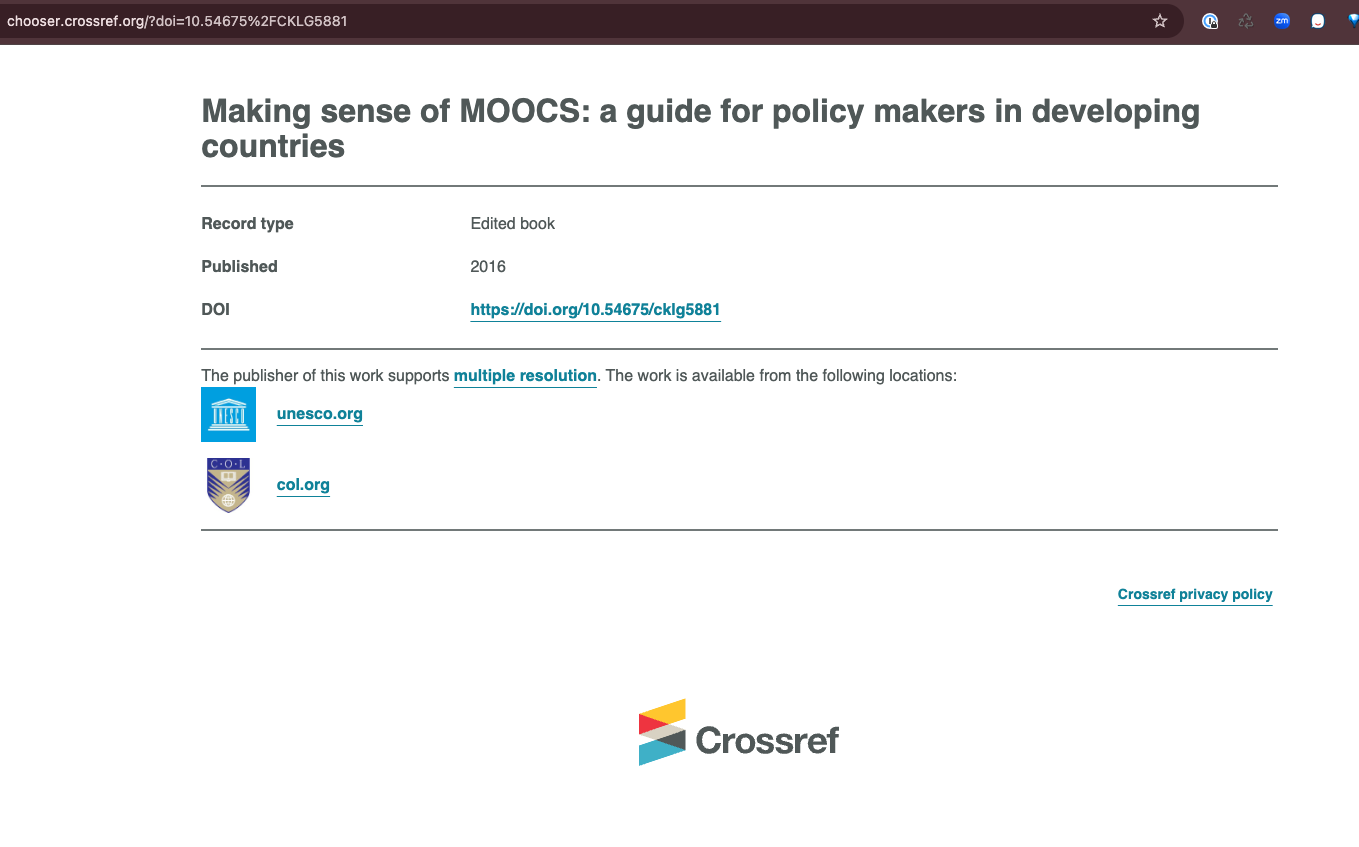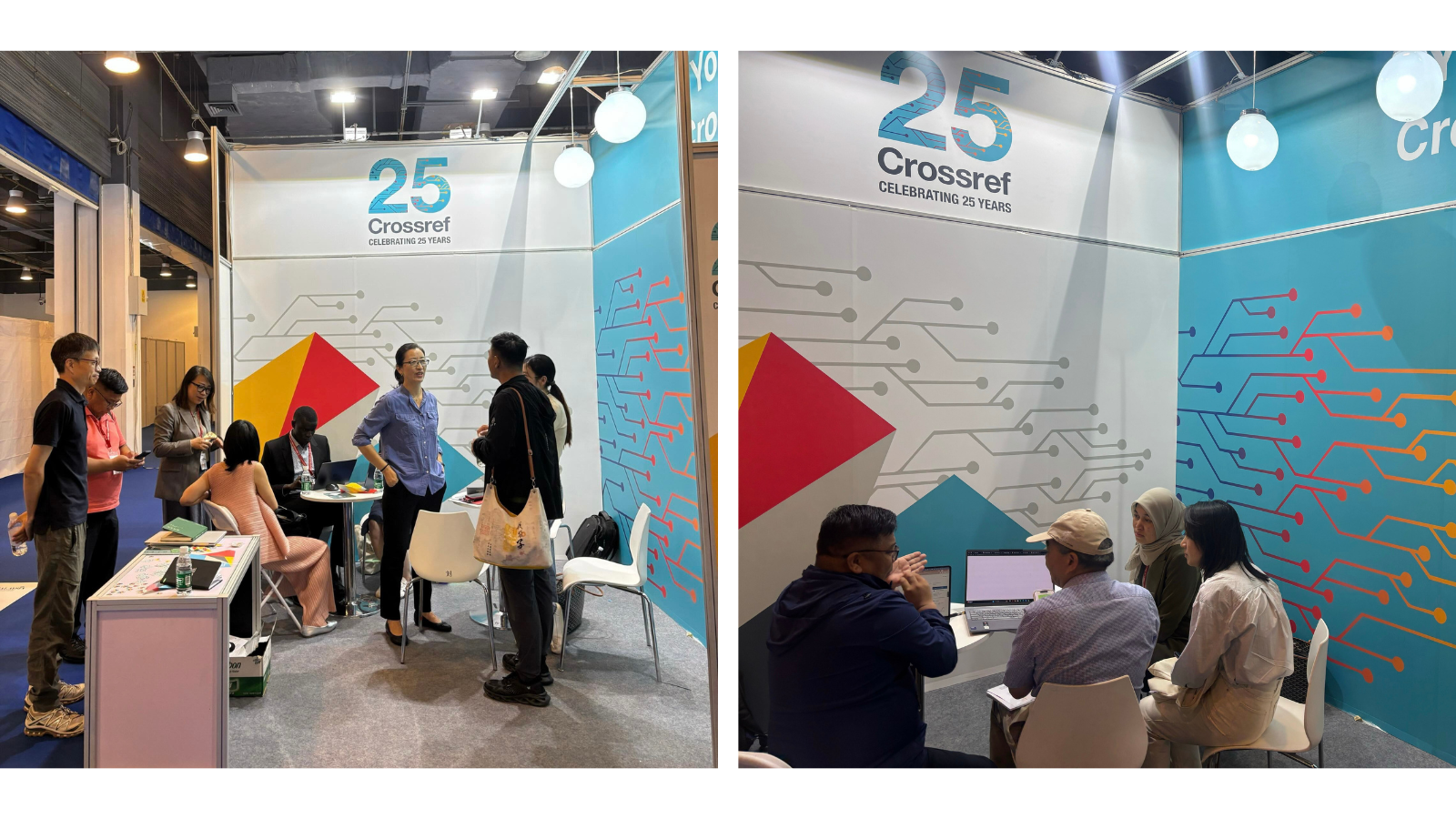On behalf of the Nominating Committee, I’m pleased to share the slate of candidates for the 2025 board election. Each year we do an open call for board interest. This year, the Nominating Committee received 51 submissions from members worldwide to fill five open board seats.
In 2022, we wrote a blog post “Rethinking staff travel, meetings, and events” outlining our new approach to staff travel, meetings, and events with the goal of not going back to ‘normal’ after the pandemic and said that in the future we would report on our efforts to balance online

To date, there are about 100 Crossref members who have made use of our co-access service for one or more of their books. The service was designed to be a last-resort measure when multiple parties - book publishers, aggregators, and other members - had rights to register book content.

This month marks one year since the Dutch Research Council (NWO) introduced grant IDs—an important milestone in our journey toward more transparent and trackable research funding. We created over 1,600 Crossref Grant IDs with associated metadata. We are beginning to see them appear in publications.
eLife recently won a Crossref Metadata Award for the completeness of its metadata, showing itself as the clear leader among our medium-sized members. In this post, the eLife team answers our questions about how and why they produce such high-quality open metadata.
Click here for the version in English Hablamos con Nacho Pérez Alcalde, Vicedirector Técnico de Editorial CSIC, la editorial al mando de ´Boletín Geológico y Minero’, ganadora del Crossref Metadata Award en la categoría de Metadata Enrichment.
TLDR: We’ve successfully moved the main Crossref systems to the cloud! We’ve more to do, with several bugs identified and fixed, and a few still ongoing.
The American Society for Microbiology (ASM) has earned recognition in Crossref’s Participation Reports for its exceptional metadata coverage among large publishing members––an achievement built on intentional change, technical investment, and collaborative work.
The Crossref Board recently approved three recommendations for changes to our fees: introduction of a new lowest membership fee tier, removal of volume discounts for record registration, and normalisation of registration fees for peer reviews. The changes will be applied from January 2026.
Click here for the version in English En 2025, lanzamos los Premios Crossref a los Metadatos, con el objetivo de destacar el rol de nuestra comunidad en la gestión y el enriquecimiento del registro académico.

This June, we presented at the Beijing International Book Fair (BIBF) and connected directly with our growing community in China.